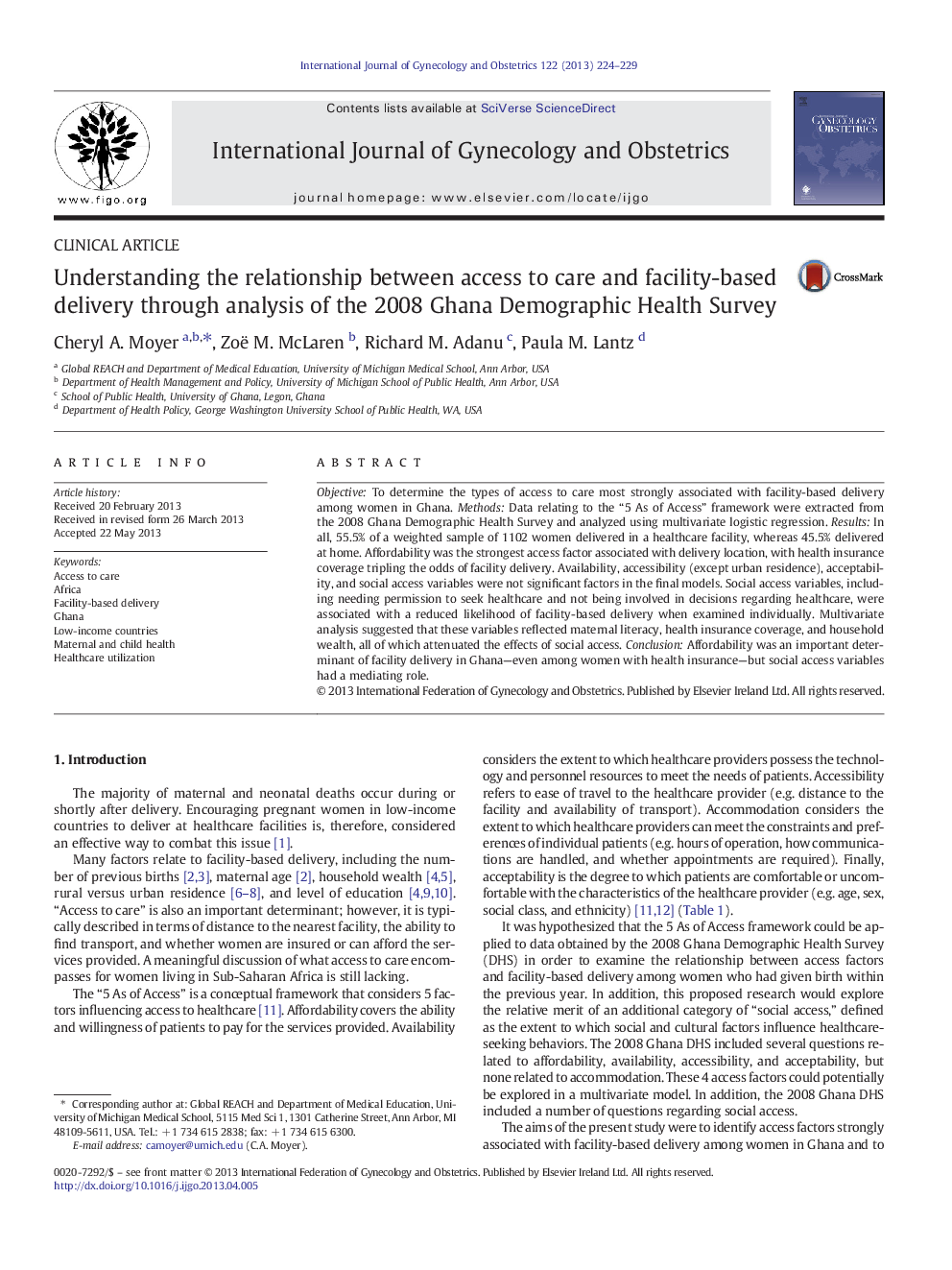| Article ID | Journal | Published Year | Pages | File Type |
|---|---|---|---|---|
| 3954282 | International Journal of Gynecology & Obstetrics | 2013 | 6 Pages |
ObjectiveTo determine the types of access to care most strongly associated with facility-based delivery among women in Ghana.MethodsData relating to the “5 As of Access” framework were extracted from the 2008 Ghana Demographic Health Survey and analyzed using multivariate logistic regression.ResultsIn all, 55.5% of a weighted sample of 1102 women delivered in a healthcare facility, whereas 45.5% delivered at home. Affordability was the strongest access factor associated with delivery location, with health insurance coverage tripling the odds of facility delivery. Availability, accessibility (except urban residence), acceptability, and social access variables were not significant factors in the final models. Social access variables, including needing permission to seek healthcare and not being involved in decisions regarding healthcare, were associated with a reduced likelihood of facility-based delivery when examined individually. Multivariate analysis suggested that these variables reflected maternal literacy, health insurance coverage, and household wealth, all of which attenuated the effects of social access.ConclusionAffordability was an important determinant of facility delivery in Ghana—even among women with health insurance—but social access variables had a mediating role.
